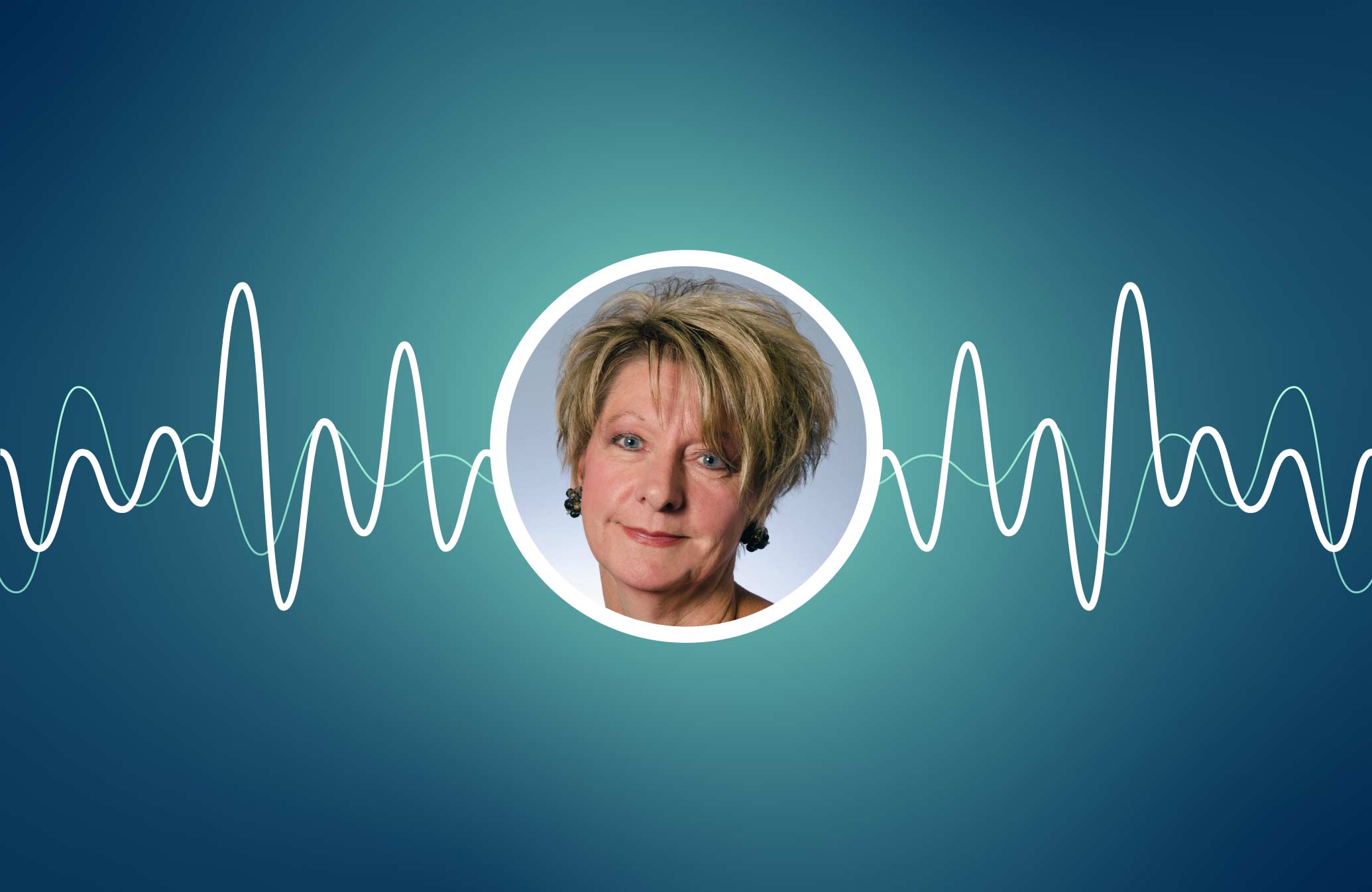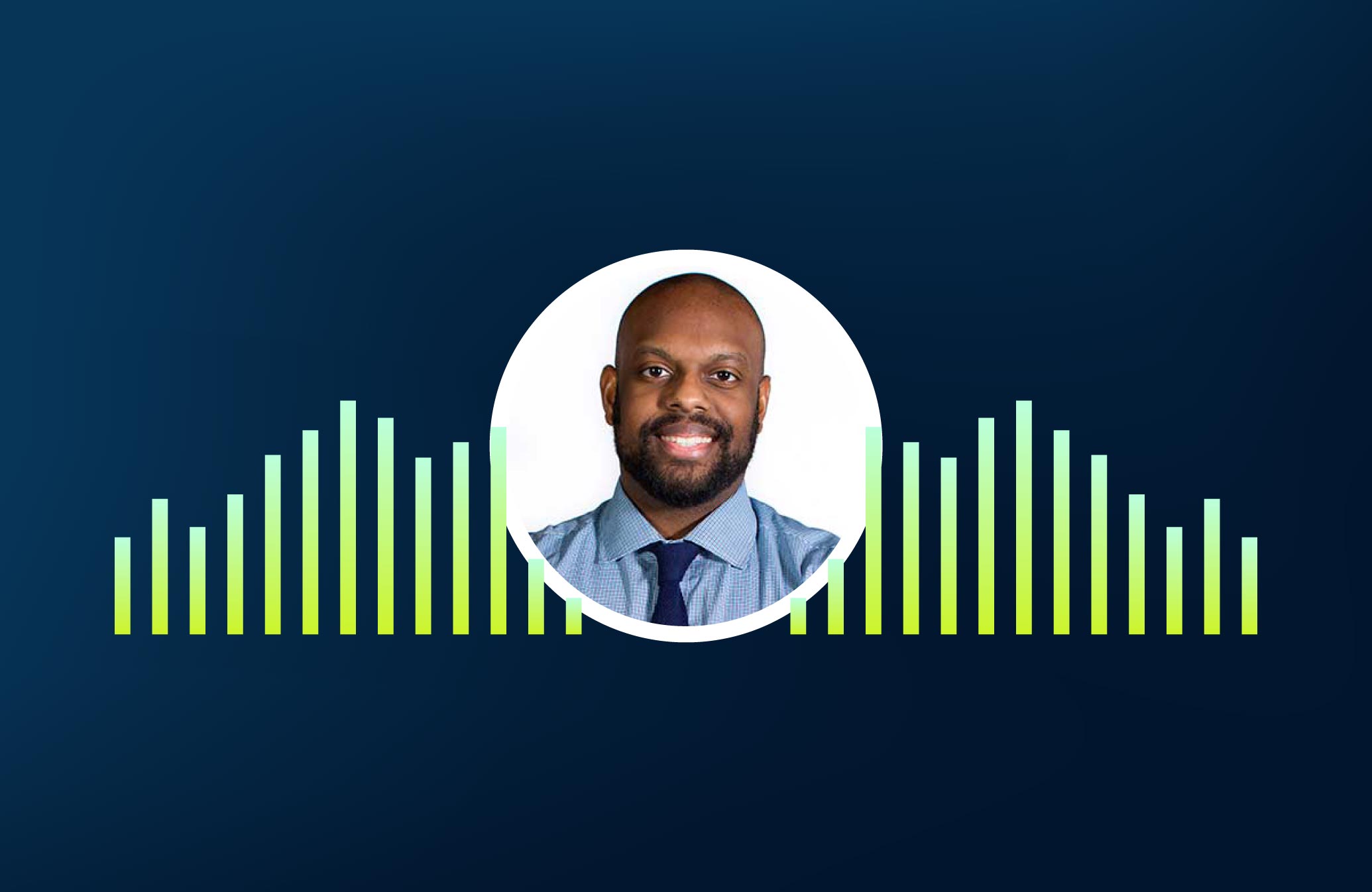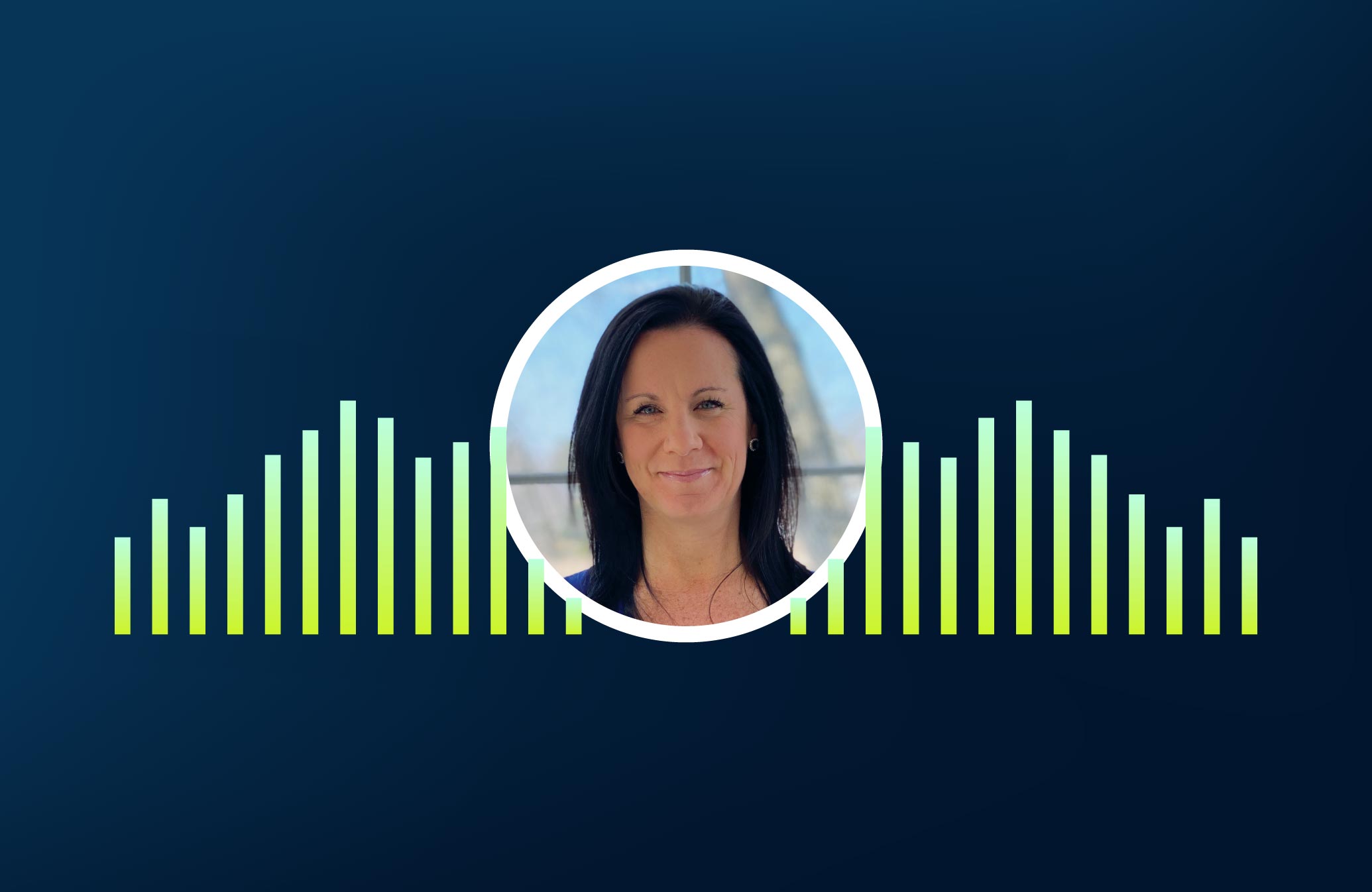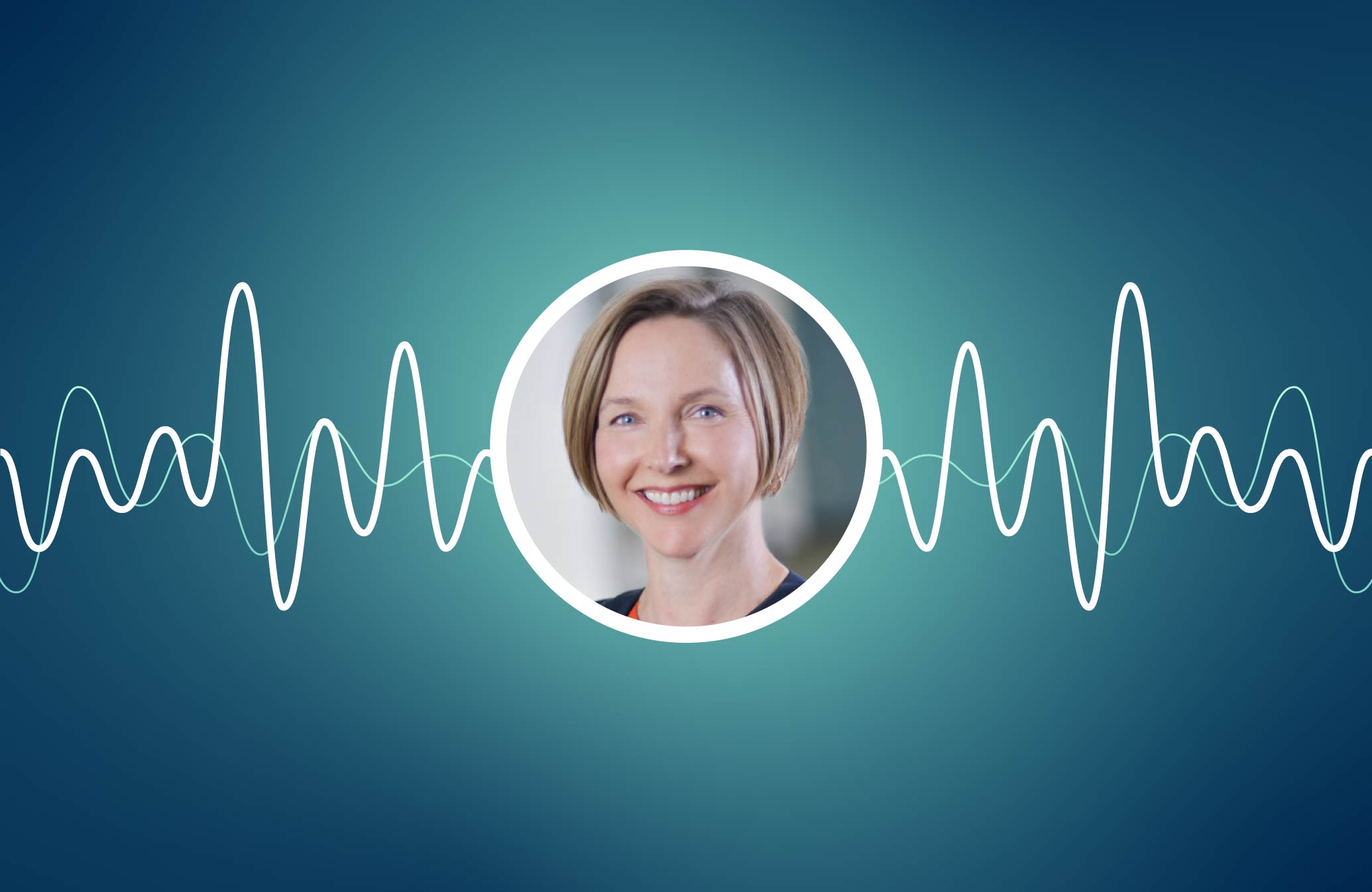Listen Now
Episode Transcript
Announcer [00:00:00] Welcome to RadioRev, podcasting from the heart of healthcare in Minneapolis, Minnesota. This is the podcast for change makers looking to do more than just health engagement. It’s about getting people to take action and do things that actually improve their health. It’s a radical idea, right? So we’re talking with the leaders, innovators, movers, and shakers who are bringing new ideas, inspiring others, and leading the way.
Jenn [00:00:26] Today, Icario CEO Jeff Fritz is talking with Vicky Couillard, Executive Director at Vail Place, a Minnesota organization that provides community-based mental health programs. We sat down with Vicky last year for an interview during Mental Health Month called “The Importance of Mental Health Programs in Driving Behavioral Health Engagement.” And now we’re back a year later to talk about how things have changed and where we’re headed. Welcome to the show.
Jeff [00:00:49] Thanks, Jenn.
Vicky [00:00:50] Thank you so much for having me.
Jeff [00:00:52] Such a pleasure to talk to you again, Vicky. It’s a beautiful summer day in Minnesota. And it sounds like the crazy summer schedule for Vail Place has begun.
Vicky [00:01:06] It has. This is a busy time for our agency, but I’m excited to be here. Thank you for having me.
Jeff [00:01:12] You’re welcome. We may have done this last time, but we can repeat it. Or if you have a new one, we like to throw in a little bit of music connection to the person that’s our guest today. So can you share with us a favorite ’80s song?
Vicky [00:01:29] ’80s song. OK. Oh, so many things pop to my mind. OK, I’m going embarrass myself with this. Donny and Marie Osmond, they had a song “A Little Bit Country, A Little Bit Rock ‘N Roll” that would describe me. So I would say, probably Def Leppard and “Pour Some Sugar on Me.” {music plays}
Jeff [00:02:08] Def Leppard. Yeah. OK. I love it. I love it. That’s early Def Leppard. Solid ’80s Def Leppard.
Vicky [00:02:15] It is. Yes, it. That’s classic stuff there.
Jeff [00:02:20] I thought you were going to go with Donny and Marie Osmond. I was going to say maybe the ’70s? I don’t know….
Vicky [00:02:26] Yeah, right? And then you’re rethinking this.
Jeff [00:02:31] Def Leppard was awesome. Fun fact, that was my first LP that I purchased with my own money.
Vicky [00:02:39] Was it really? Strong choice, Jeff.
Jeff [00:02:45] My mother was appalled that I bought that album. So some of the people here have heard our prior podcasts, so maybe you could just do a little brief introduction of the work you’re doing with Vail Place and why community programs in general are so important to people with mental illness.
Vicky [00:03:08] Sure, of course. So first we’ll talk about Vail Place. Vail Place started 38 years ago as a Clubhouse. A lot of people aren’t familiar with that program, but it’s just a really incredible, integrated program that addresses both the symptoms of mental health and mental illness, as well as addresses the social determinants that we all need to live healthy and fulfilling lives. So everything from helping people find employment to housing, reducing isolation, teaching people the skills that they need to live in the community—how to shop, how to take the bus, all the things that we need. And I think that from there Vail Place has grown over the years. We provide a whole spectrum of services that cover the intensity of people’s needs in the community. And I would say that the philosophy of Clubhouse has really set the stage for how we approach our work. We believe in people’s self-determination and self-advocacy. We believe in their ability to recover and are very person centered. This model is 70 years old. And so before ‘person centered’ became a term that everybody was talking about, Vail Place was doing it through our Clubhouse Model. And I think that philosophy runs through all of our programs, and it really supports our mission and the work that we do every day. And I think it helps create the culture that we have at our agency. And so I will do a little plug and just add that Vail Place was nominated as a Top 150 Workplace this year for the first time, which we’re excited about.
Jeff [00:04:58] Nice, congrats.
[00:04:58] Thank you. Thank you. But I think it speaks to the level of commitment that our staff and other people feel about community resources and how important they are. When somebody sees their therapist or psychiatrist, when they walk out that door, they’re in the community, and it’s like, “What now?” Well, what now is Vail Place and other community providers. We pick up at that point and ensure that people are stable in the community. So kind of a brief overview, but I hope it gives a sense of the importance of what community providers provide.
Jeff [00:05:38] Yeah. That’s awesome. Thank you for that. And it’s the reading that we’ve been doing around mental health…it seems like it’s becoming more of a norm to talk about mental health problems. And people are being encouraged to get more and more vulnerable. I’m wondering if you have some thoughts around how we continue to create safe spaces to have these discussions around mental health in our communities.
Vicky [00:06:17] It’s interesting, you mentioned at the start of our conversation an article that you had read in NAMI’s national newsletter, and I think I may have seen that same article. And they talk about the seven types of stigma from public to perceived to personal. But at the core, at the center of all of that is really education. I think making sure that people truly understand mental health and what that means. And I think the fact that we’re talking about physical and mental health now together, I think has also broken down a lot of barriers. But at the center of it, really, I think it’s education.
Jeff [00:07:03] Are you seeing differences in how that gets tackled from an age standpoint? So are other things happening in our public school system? Are there things happening in the workplace? Are there things happening that are early signs that we’re doing more of that education?
Vicky [00:07:30] Certainly at the school level we are seeing a lot more conversation about it. I mean, you’re seeing students rallying and creating support groups. I think our culture is changing. I don’t know. I’m older than you are, Jeff. But this is not a conversation we had when I was in high school. So I’m excited to see that change. And even in the healthcare realm, people are talking about mental health in a way that’s healthy and normal and very approachable and very comfortable. So I think, as agencies, we’re creating a safe space. I think a lot of employers do the same. They’re putting bulletins out. They’re creating a space for people to share their stories. And yet, at the end of the day, does your coworker, who is in the dust next to you, do you feel comfortable sharing your story? And hopefully we’ll get to a point where people are comfortable having those conversations.
Jeff [00:08:30] Yeah, it seems just so front and center to an evolving conversation that’s happening in our business. And the strategies that are being tried to unlock just the education and talking about it seem to be on point with what we’re seeing. It seems like from some of the notes that I’ve been seeing is the mental health resources have continued to decline, and they’re down to one therapist for every 100,000 people. How do you see the industry? And maybe Vail Place is one of those places that is responding to the decline in providers.
Vicky [00:09:18] So Vail Place does not provide therapy, and we do not have psychiatrists. But I do have a couple of thoughts around that. We’re seeing more and more people being able to access psychiatry virtually. I think that’s so helpful, especially for people who live outstate, and they don’t have access to an office near them. So we have a number of our members, we call our clients members, who access their therapy, their psychiatry, virtually via the Internet. So it’s been incredibly successful, and we’re seeing more of that. And on the flip side, recognizing that shortage, we’re also seeing, the ‘three strikes, you’re out’ approach that clinics need to take. Understandably, if somebody isn’t able to keep their appointments, after three times, they no longer can see that psychiatrist or see that particular therapist. You talked initially about the importance of community support programs. And that’s one of the things that we do. All of us as providers, we’re helping ensure that people get to the clinic, that they see their therapist, they keep the appointments, and they’re not missing them so that they’re able to maintain that relationship. Because it is so hard, and it takes so long to get in. The last thing you want anyone to do is to lose that, to lose that connection, because they were unable to make the appointment.
Jeff [00:10:56] Well, that’s awesome around the virtual care and unlocking a whole other channel for people to receive some of the episodic care that they need. Do you see physicians engaging in this differently? Are they seeing a byproduct of mental health that impacts the general well-being of their other patients?
Vicky [00:11:23] So what we are seeing—we have a partnership with North Memorial Health. And what we’re seeing is that how they’re engaging in a different way is changing the paradigm from people going into the clinic, but also sending people out. So really leveraging their community paramedics and then social workers and our case managers doing ride-alongs when they do have a client who is struggling with a mental illness or is in crisis. So we are seeing a change and a shift in how people even think about their healthcare and what that looks like for them.
Jeff [00:12:05] It’s super interesting to watch how there are some adaptations like just a ride-along that just make so much sense to me. So when we talked about a year ago, you talked about a few things that I would like to follow up on. One of them is you had mentioned that primary care people are doing more health-risk assessments, but there aren’t enough options after the assessment is complete. Have you seen any improvement in the past year on this?
Vicky [00:12:36] I think our partnership, what we’re seeing and really appreciate the assessments that clinicians are doing, I think that they have less knowledge about the resources in the community, which is, again, where community providers play such an important role. So I think it’s difficult for them to make a referral at times. And there aren’t always the resources out there. In particular I mean we’re certainly seeing healthcare providers recognizing the importance of those social determinants. Think about housing. I mean, we candidly see, probably 70-80% of the referrals that we’ll receive are for people who are currently homeless or it being imminent for them. So I think that it’s hard to think about your healthcare when right now I’m just looking for a place to sleep. So I think that we’re seeing a lot more focus on really recognizing what the social determinants are and the role that community providers can play because we’re the resource in that community. So I think that clinicians being able to leverage their partners in ways that we can then expand resources is really innovative, and it’s a change that we’re experiencing more and more.
Jeff [00:14:04] So dust off your crystal ball here. Today, as you look into that crystal ball, what do you think mental healthcare will look like in the next 10 years?
Vicky [00:14:20] It is a big, big question. From a payment perspective we’re certainly seeing a push to value-based contracting. It’s a change. It’s something that all of us are having to think about, how we’re structured, how we deliver services, how we can establish a value for services. I would say I think there’s a bigger…we’ve talked about social determinants, there is more value around that. And again, it’s such a big question. I think there are so many changes in the industry right now that we’re all looking for that crystal ball, not to be coy. We’re looking for a few answers for sure.
Jeff [00:15:15] So for the push on the social determinants, it sounds like that’s something that has changed over the past year. The view of social determinants or social barriers has gotten more attention, which may be informing your view of the long-term future. That, OK, there’s some movement here. Is there anything that you see in the near-term around social determinants that’s exciting you?
Vicky [00:15:45] I think the fact that UnitedHealth has set goals around it. I think we’re actually seeing people take action and seeing the healthcare industry take action, which is exciting for us. That’s kind of our sweet spot. You know, there’s more conversations, certainly nationally. Recognition for the value. That’s a tough one, Jeff.
Jeff [00:16:09] Yeah. And we’re hearing the phrase ‘social determinants’ harden a little bit. I think about a year ago it was fairly novel. And now I’m starting to hear, as probably you are, more definition around, what does that mean? How do we remove it? How do we remove a social determinant that’s negative? How does that get funded? Is there government funding? Is there private funding? Is there insurance funding? All of those things are starting to be talked about a lot more this year than they were a year ago.
Vicky [00:16:47] It’s true. It really is. And we’re exploring more partnerships individually with some healthcare providers and looking at how can we impact that for some of their higher-risk clients? So there is definitely more conversation around that. I think the payment structure is challenging. It’s something people haven’t thought about. So there’s not necessarily a structure for it right now.
Jeff [00:17:16] So closing up here, what do you think is the most important thing anyone can do that would help spread awareness about mental health?
Vicky [00:17:27] Great question. Talk about it. Be genuine. Be honest. Listen. Listen when somebody comes to you and they talk about their story and their family or their sibling or themselves. Be open. But I think have the conversations. I appreciate Make it OK and some of the different initiatives that are out there that really have raised visibility for just engaging in the conversation.
Jeff [00:18:00] That’s hard. We’re still so resistant to vulnerability, to open that up. How do you think social media has impacted that? Has it helped it? Or has it become a more curated world where we’re less vulnerable?
Vicky [00:18:20] That’s a good question. Probably a little bit of both. I think people have access to some of the exciting things that are happening. And when somebody has achieved…they’ve gotten their first house. So they’re able to share some of those things. But we’re also seeing that people will come in and talk about a news story, or they’ll talk about seeing something on Facebook, some of the shaming and blaming that happens. I certainly think that’s a dramatic impact for teenagers and other people.
Jeff [00:18:56] Well, the work continues, right? And we’re lucky to have somebody like you in the community on the front lines helping all these people work through these challenges. Thank you.
Vicky [00:19:11] Well, thank you. And thank you for taking time to talk with me today.
Announcer [00:19:16] Thanks for joining us for the RadioRev podcast, brought to you by Icario. If you found today’s conversation as informative and energizing as we did, please take a moment and subscribe to the podcast. As always, we invite you to learn more about us and check out all of our content at dev-revel-health.pantheonsite.io/RadioRev.
Inside the Episode
This week Icario CEO Jeff Fritz talks with Vicky Couillard, Executive Director at Vail Place, a Minnesota organization that provides community-based mental health programs.
Jeff sat down with Vicky last year for an interview during Mental Health Month called The Importance of Mental Health Programs in Driving Behavioral Health Engagement and now we’re back a year later to talk about how things have changed and where we’re headed. Topics Vicky addresses in this episode include:
- How to create more safe spaces to have important discussions around mental health
- The decline in mental health resources and the industry response
- Why community programs are critically important for people struggling with mental illness
To keep the conversation with Vicky going, connect with her on LinkedIn.
“Within the healthcare space, people are talking about mental health in a way that’s healthy, very approachable, and comfortable. On a larger scale, we need more organizations creating a space for people to share their stories.”
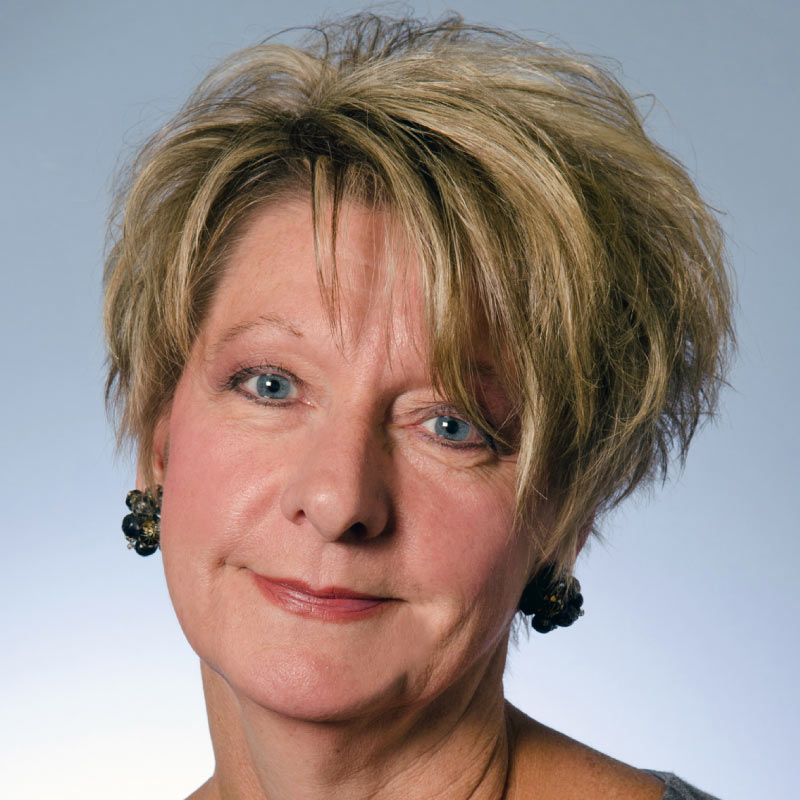
Vicky Couillard
Executive Director at Vail Place
Can’t get enough of RadioRev?
Check out all of our episodes to stay up-to-date on the latest in healthcare innovation, social determinants, and health action.

